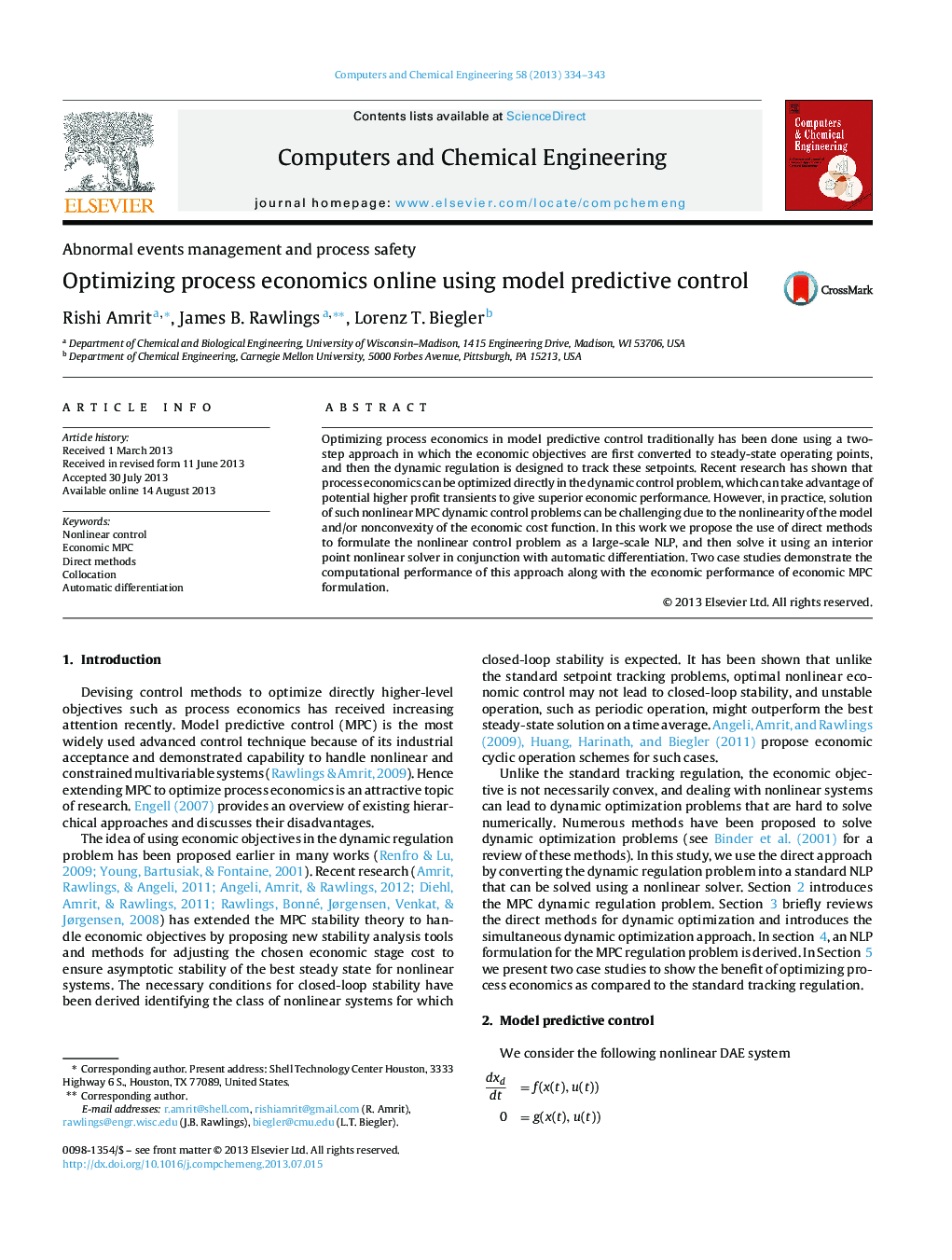| Article ID | Journal | Published Year | Pages | File Type |
|---|---|---|---|---|
| 172576 | Computers & Chemical Engineering | 2013 | 10 Pages |
•Economics optimizing nonlinear dynamic MPC problems are considered.•Nonlinear dynamic control problems were converted to large scale NLP.•Sparse interior point solver was used in conjunction with automatic differentiation.•Case studies demonstrate superior economic performance of plant and computational performance of setup.
Optimizing process economics in model predictive control traditionally has been done using a two-step approach in which the economic objectives are first converted to steady-state operating points, and then the dynamic regulation is designed to track these setpoints. Recent research has shown that process economics can be optimized directly in the dynamic control problem, which can take advantage of potential higher profit transients to give superior economic performance. However, in practice, solution of such nonlinear MPC dynamic control problems can be challenging due to the nonlinearity of the model and/or nonconvexity of the economic cost function. In this work we propose the use of direct methods to formulate the nonlinear control problem as a large-scale NLP, and then solve it using an interior point nonlinear solver in conjunction with automatic differentiation. Two case studies demonstrate the computational performance of this approach along with the economic performance of economic MPC formulation.
